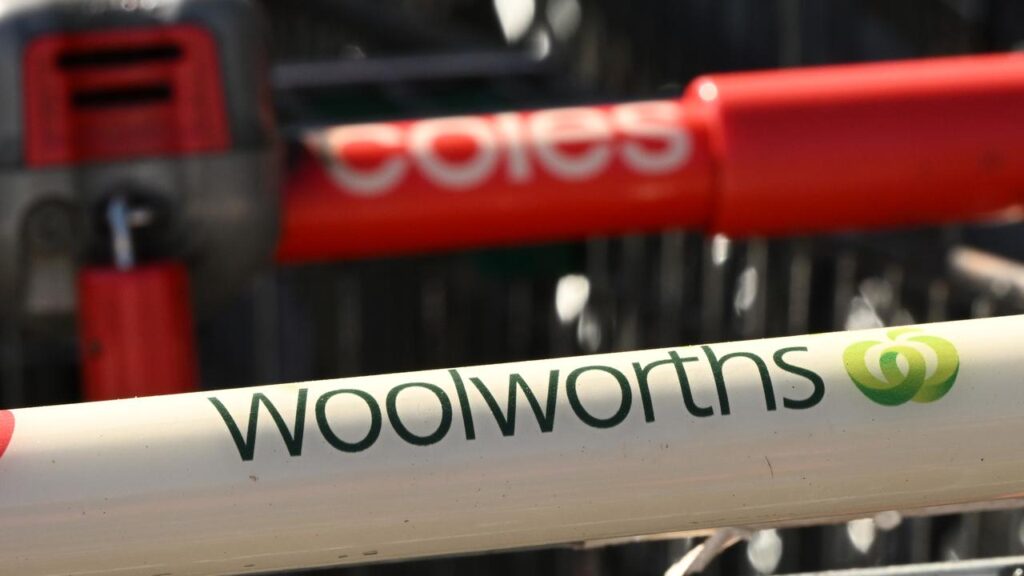Coles, Woolies staff stuck in mass underpayment case
Adelaide Lang and Tom Wark |

Allegations of rampant employee underpayment at Coles and Woolworths that affected almost 30,000 staff remain unresolved two years after a lengthy trial.
The Federal Court on Friday handed down a judgment on four cases against the supermarket giants after a watchdog argued there was tacit approval of illegal conduct in many stores.
Woolworths and Coles have repaid $330 million and $7 million respectively to managers who were not properly paid entitlements due to them as salaried employees, Justice Nye Perram said.

But the Fair Work Ombudsman and former grocery store employees behind two class actions say the market leaders should be forced to pay more.
The watchdog argued the relevant award set out a 38-hour work week but there was tacit approval to allow people to work overtime regularly.
It claims there were failures in the use of “informal” rosters, time off in lieu and record-keeping on overtime, penalties and allowances.
But Woolworths said some employees were authorised to work up to 45 hours a week and they were not required to do overtime beyond that.
Coles argued managers had autonomy over their hours and the estimates of working hours and days were overestimated by the Fair Work Ombudsman.
Justice Perram found both supermarket chains did not comply with their obligation to keep accurate employment records.
He noted Coles failed to operate an overtime system for managers and its clocking records were unreliable.
One of the lead litigants, who mostly managed the customer service desk, likely worked on days when she was not rostered so roster sheets were not indicative of the hours worked, the judge said.

Her phone records could better demonstrate when she was at work, the judge found, while dismissing Coles’s arguments she had not missed unpaid meal breaks.
The woman, whose pay was docked for Coles-branded clothing, was also entitled to a clothing and laundry allowance.
But the judge used his 82,000-word judgment to criticise all sides, including the Fair Work Ombudsman, for making the case “unacceptably complex”.
The parties mainly wanted answers about how the general retail award applied but got bogged down presenting myriad case studies to the court.
The ombudsman’s case against Woolworths involved 32 managers at five locations across Sydney, Melbourne and Brisbane from June 2015 to September 2019.
The case against Coles involved 42 managers, some of whom were employed in multiple shops, from 2017 to 2020.
“Whilst I would not wish to (be) definitive about how litigation of this kind might be handled in the future, I am confident that they should not be handled the way these four cases were,” Justice Perram said.
“This should not be done again.”

He will conduct a case management hearing in October to determine the next steps and compensation for the affected 27,700 employees.
In a statement, Coles said that it has now paid $30 million in remediation to affected employees.
The grocery giant said it hoped Justice Perram’s judgment would provide “much-needed clarification” on the industry award and Fair Work Act.
“We (have) introduced new processes and safeguards to ensure this won’t happen again,” a spokesperson said.
“We again apologise to our team members who were affected.”
Woolworths pointed to the remediation paid to affected employees and said further payments would need to be scrutinised carefully.
“We are focused on resolving these underpayment issues,” chief executive Amanda Bardwell said.
“We are committed to ensuring that our team members are paid correctly.”
Friday’s decision would also provide guidance to other employers and workers affected by the general retail award, particularly those on annualised salaries, the Fair Work Ombudsman said.
The watchdog is seeking both rectification of underpayment as well as penalties against Coles and Woolworths.
AAP